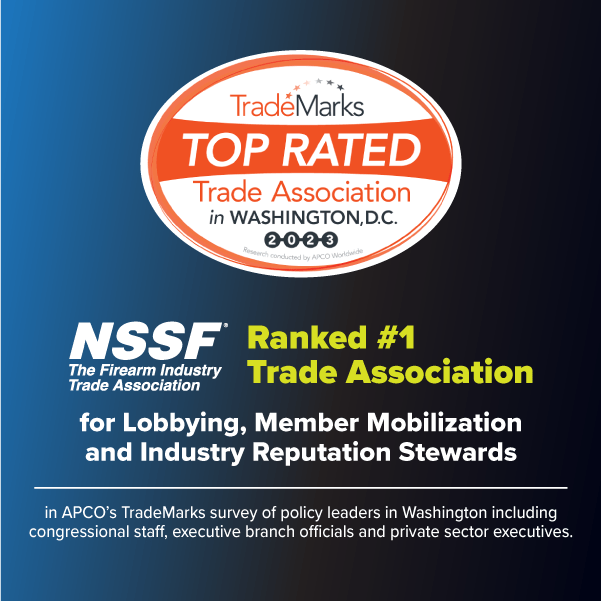 Back to News
Back to News
February 29, 2016
Hillary’s Drive-By Attack on Guns
As published in The Wall Street Journal on February 26, 2016.
Her claim that a 2005 law supported by Sanders gave gun manufacturers ‘immunity’ is pure fiction.
 |
| Hillary Clinton in New York City, Feb. 16. Photo: Andrew Burton/Getty Images | Reprinted with permission. |
In a fundraising email Wednesday, Hillary Clinton said that “families from Sandy Hook are in court suing the manufacturer of the gun that killed their children, challenging the law that gives gun-makers legal immunity. I voted against that law. Senator Sanders voted for it.” The email continued a line of attack that Mrs. Clinton and her surrogates have used for weeks against Bernie Sanders, her rival for the Democratic presidential nomination.
The law Mrs. Clinton is talking about is the Protection of Lawful Commerce in Arms Act, which passed Congress in 2005 with bipartisan support. The onslaught against Mr. Sanders appears to be working: He has announced that he will sponsor legislation to repeal the law he once supported.
As someone whose life has focused on tort law, not politics, I feel it is important to correct misconceptions about gun-manufacturer liability.
Putting rhetoric aside, this much is clear: Traditional liability law still applies to gun manufacturers. The Protection of Lawful Commerce in Arms Act specifically states that makers of firearms are liable for any defect in their products, such as if a gun misfires and harms someone, or if it does not work at all and fails at the moment it is lawfully needed.
The notion that Congress gave gun manufacturers inappropriate immunity from lawsuits is a fiction. Instead the 2005 law stands for the unremarkable premise that when a business makes or sells a lawful product, but the product is used in an unlawful way, it is not the fault of the maker or seller. It is the fault of the criminal.
The law also makes clear that gun manufacturers and sellers can be sued if they did something unlawful that led to the criminal act or injury. The bill does not protect retailers, for instance, if they sell a gun to someone they could have reasonably suspected was going to commit a crime. Nor does the legislation provide cover for anyone who violates laws regarding the sale or marketing of guns. These things are within the manufacturers’ or dealers’ control.
Although some in the gun industry hailed the enactment of the Protection of Lawful Commerce in Arms Act, all it did was clarify existing law. Congress passed the act for the very practical purpose of curbing frivolous and agenda-driven lawsuits. In the late 1990s and early 2000s, some cities and antigun activist sought to subject gun manufacturers to liability for gang violence and other crimes. For instance, in 1998 Chicago sued 18 manufacturers for injunctive relief and over $400 million in damages for alleged harms associated with gun violence.
If successful, this litigation would have undermined the long-standing principle of tort law that a manufacturer is not subject to liability when its product is put to an unlawful use by another. The cost of this unfair liability would affect myriad products.
About 1,500 murders are committed every year with knives, according to the FBI. But it makes no sense, legally or socially, to hold knife manufacturers responsible for these deaths. Should someone hit by a drunken driver be able to sue the company that manufactured the driver’s car? Keep in mind that car makers would pass these costs on to consumers by raising prices for everyone. No matter how carefully a manufacturer designs and builds its products, it is impossible to completely eliminate the possibility for harm at the hands of someone who criminally misuses that product.
Nevertheless, abusive lawsuits attempting to expand manufacturers’ liability have become common. They are most often filed by a plaintiff or agenda-driven group that wants to regulate an industry but has failed to persuade either Congress or state legislatures. Instead they sue and ask judges to impose their preferences.
President Clinton’s labor secretary, Robert Reich, labeled these types of lawsuits “regulation through litigation.” Writing in the American Prospect in 2000, he concluded that federally sponsored lawsuits, such as those against gun and tobacco companies, were “end runs around the democratic process.”
Congress has historically stepped in to stop such abusive litigation and address liability issues of national importance. In 1994 lawmakers approved the General Aviation Revitalization Act to stop lawsuits for design defects against aircraft manufacturers whose planes flew without problems for more than 18 years. The legislation has been viewed by industry groups, legal scholars, and the Government Accountability Office as vital to restoring the industry’s viability.
In 1998 Congress passed the Biomaterials Assurance Access Act to prevent suppliers of raw materials used in medical devices from being sued for defects in those devices. In 2001 Congress passed the Teacher Protection Act to shield teachers and administrators when they properly follow school procedures in disciplining students. Legislators understood that the classroom should be a place for education, not unfounded litigation.
By passing these laws in bipartisan fashion, Congress sent a strong message that unsound liability should not be condoned. That the same principle holds for manufacturers of guns ought to be kept in mind during this contentious campaign season.
Mr. Schwartz is a co-author of the most widely used torts casebook in the United States, Prosser, Wade and Schwartz’s Torts (13th ed. 2015) and chairman of the public-policy group of Shook, Hardy & Bacon LLP in Washington, D.C.
Categories: Featured, Government Relations, Top Stories









